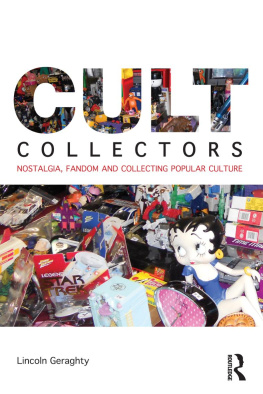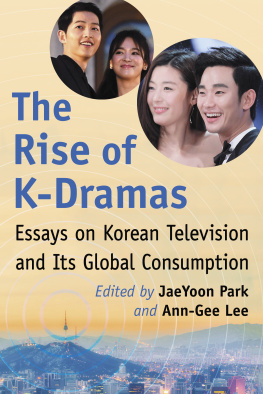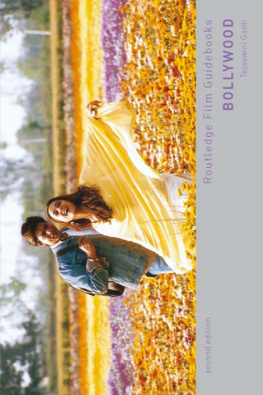
Fandom

Fandom
Identities and Communities in a Mediated World
E DITED BY
Jonathan Gray, Cornel Sandvoss, and C. Lee Harrington
W ITH AN AFTERWORD BY
Henry Jenkins

NEW YORK UNIVERSITY PRESS
New York and London
www.nyupress.org
2007 by New York University
All rights reserved
LIBRARY OF CONGRESS CATALOGING-IN-PUBLICATION DATA
Fandom : identities and communities in a mediated world / edited by
Jonathan Gray, Cornel Sandvoss, and C. Lee Harrington ; with an
afterword by Henry Jenkins.
p. cm.
Includes bibliographical references and index.
ISBN-13: 978-0-8147-3181-9 (cloth : alk. paper)
ISBN-10: 0-8147-3181-3 (cloth : alk. paper)
ISBN-13: 978-0-8147-3182-6 (pbk. : alk. paper)
ISBN-10: 0-8147-3182-1 (pbk. : alk. paper)
1. Fans (Persons) 2. Subculture. 3. Popular culturePsychological aspects. I. Gray,
Jonathan (Jonathan Alan) II. Sandvoss, Cornel. III. Harrington, C. Lee, 1964
HM646.F36 2007
306.487dc22
2006101774
New York University Press books are printed on acid-free paper, and their binding materials are chosen for strength and durability.
Manufactured in the United States of America
c 10 9 8 7 6 5 4 3 2 1
p 10 9 8 7 6 5 4 3 2 1

Contents
The Death of the Reader?
Literary Theory and the Study of Texts in Popular Culture
Media Academics as Media Audiences:
Aesthetic Judgments in Media and Cultural Studies
Yoko in Cyberspace with Beatles Fans: Gender
and the Re-Creation of Popular Mythology
On the Set of The Sopranos:
Inside a Fans Construction of Nearness
A Sort of Homecoming:
Fan Viewing and Symbolic Pilgrimage
From Smart Fan to Backyard Wrestler:
Performance, Context, and Aesthetic Violence
Between Rowdies and Rasikas:
Rethinking Fan Activity in Indian Film Culture
Beyond Kung-Fu and Violence:
Locating East Asian Cinema Fandom
Han Suk-kyu and the Gendered
Cultural Economy of Stardom and Fandom
: Shifting Contexts, Changing Fan Cultures:
From Concert Halls to Console Games
Loving Music: Listeners, Entertainments, and the Origins
of Music Fandom in Nineteenth-Century America
Customer Relationship Management:
Automating Fandom in Music Communities
Fan-tagonism: Factions, Institutions, and
Constitutive Hegemonies of Fandom
Untidy: Fan Response to the Soiling of
Martha Stewarts Spotless Image
The Anti-Fan within the Fan:
Awe and Envy in Sport Fandom
The Other Side of Fandom:
Anti-Fans, Non-Fans, and the Hurts of History

Acknowledgments
The editors would like to thank all the contributors; Emily Park at NYU Press; Matt Hills for invaluable help and ideas in the books early stages; our families, friends, Monica Grant, and Kim Schimmel.

Introduction
Why Study Fans?
Jonathan Gray, Cornel Sandvoss,
and C. Lee Harrington
Most people are fans of something. If not, they are bound to know someone who is. As much as we all have a sense of who fans are and what they do, the question arises as to why we need to further study a phenomenon we seem so familiar with. Why do the questions of which television program, music, or artist we follow make an important contribution to our understanding of modern life? How can a focus on pleasure and entertainment be justified at the end of what will enter history books as a century of violence, driven by rapid social, cultural, economic, and technological change, and with the twenty-first century set to follow the same trajectory? What contribution can the study of fans make to a world faced with war, ethnic conflicts, widening inequality, political and religious violence, and irreversible climate change, among other disasters?
The laconic answer to these questions is that fandom matters because it matters to those who are fans. However, beyond this, the contributions fan studies have made have varied in the course of what we, in retrospect, can summarize as three generations of fan scholarship over the past two decades.
Fandom Is Beautiful
For the first wave of scholars who took their particular inspiration from de Certeaus (1984) distinction between the strategies of the powerful and the tactics of the disempowered, the consumption of popular mass media was a site of power struggles and fandom the guerilla-style tactics of those with lesser resources to win this battle. The study of fandom was thus automatically considered a worthy cause, one that represented and championed those disadvantaged within society, as fans, in John Fiskes words, are associated with the cultural tastes of subordinated formations of the people, particularly those disempowered by any combination of gender, age, class and race (1992: 30).
Within this tradition, which spanned from Fiske to Henry Jenkinss (1992) canonical Textual Poachers, fandom was automatically more than the mere act of being a fan of something: it was a collective strategy, a communal effort to form interpretive communities that in their subcultural cohesion evaded the preferred and intended meanings of the power bloc (Fiske 1989) represented by popular media. Fan studies therefore constituted a purposeful political intervention that sided with the tactics of fan audiences in their evasion of dominant ideologies, and that set out to rigorously defend fan communities against their ridicule in the mass media and by non-fans. Joli Jensen (1992), for instance, highlighted the similarities in the portrayal of fans as part of an undifferentiated, easily manipulated mass in media representations and early mass communication scholarship. Instances of such stereotypical treatment, which always involve a deliberate distancing from fan audiences, still persist today. When in November 2005 the fourth installment of the Harry Potter films opened in theaters across North America, much of the media coverage exhibited inordinate fascination with the fan cultures that surround this multimedia blockbuster. The New York Post offered a two-page spread on Potterheads: Wizards of Odd, in which writer Maureen Callahan described, as her subtitle reads, how adult fans go hogwarts [sic] wild as new Trekkies (2005: 4647). Seemingly an earnest attempt to enter into the mind of the fan, the article in its frequently snide tone and vocabulary and its belittling of fans as otherwise functioning adults in the weird house (2005: 46) reveals a firm desire to understand fandom solely as Other. While more thoughtful commentary is provided courtesy of Syracuse Universitys Robert Thompson later in the article, his lead quote asks, Who better than the socially awkward to be engaged by a story about a kid with no friends, abused by his guardians, who becomes a savior with stigmata on his forehead? The point of reference to which the
Next page








